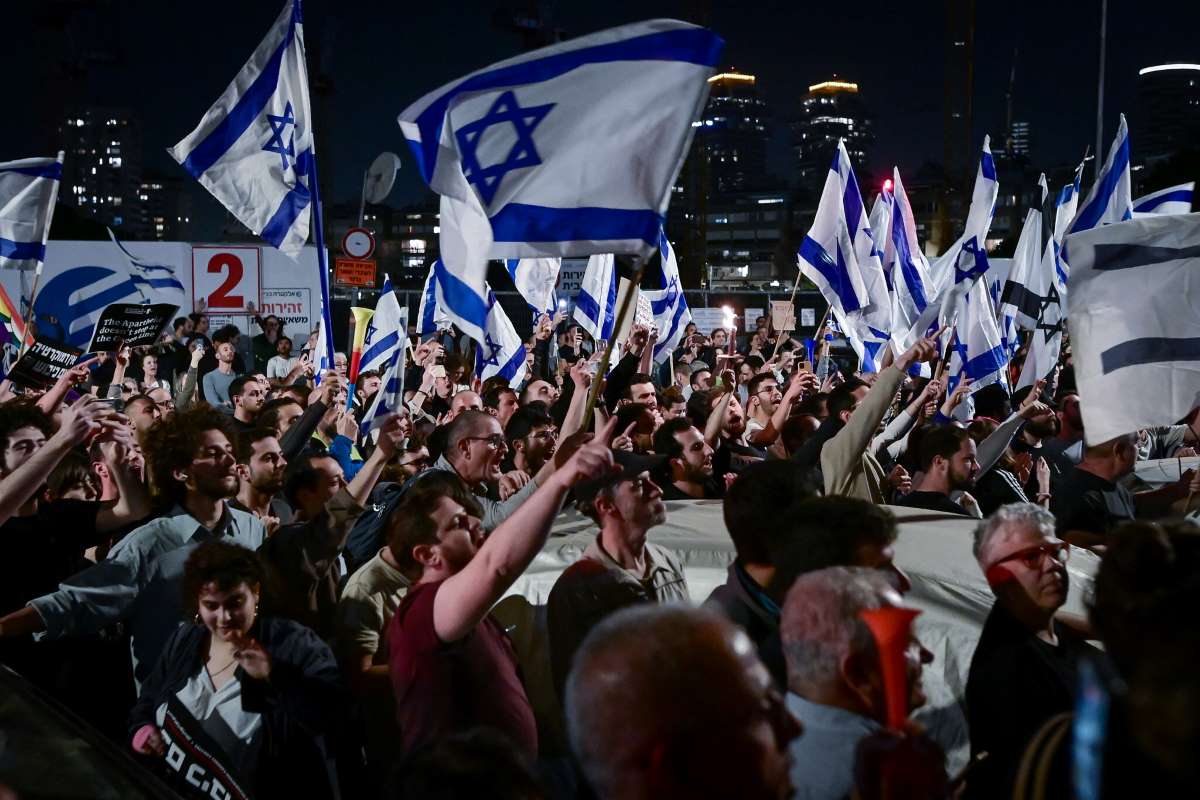The rallies were held on Saturday in the coastal city of Tel Aviv, the occupied city of al-Quds, and the city of Karmiel, near the coastal city of Haifa, in the northern part of the occupied territories.
In addition, about 12,000 people demonstrated in Netanya, while more than 10,000 demonstrated in Herzliya, 3,000 in Beersheba, and thousands in several other areas.
In Tel Aviv, the protesters held up a large banner that read “Crime Minister” in reference to Netanyahu, with participants shouting “Shame!”
They also waved banners, some of which read, “Oh police, where were when they [Israeli settlers] burned Huwara?” in reference to the terrorist pogrom against Palestinians by Israeli settlers last week in the town of Huwara, south of the occupied West Bank city of Nablus.
Demonstrators also held a banner bearing the images of two hard-line minsters of the regime and behind it a picture of the town of Huwara burning following the settlers’ attack.
Scuffles broke out in Tel Aviv at the end of the mass protest against Netanyahu’s proposed plan, when a group of protesters breached barricades and clashed with the regime’s security forces, blocking a Tel Aviv highway for a short while.
Israeli security forces on horseback confronted the demonstrators, some of whom lit up a torch, and used water cannons to hold them back.
Four people were detained in Tel Aviv protest.
Israeli media have put the number of demonstrators in various cities across the occupied territories at more than 200,000, adding that around 160,000 took part in Tel Aviv protest alone.
In Haifa, the number of demonstrators was significantly higher than previous weeks. They demanded Netanyahu step down. The protesters also waved banners with slogans written in Hebrew, English and Arabic, including: “Palestinian lives matter,” “A people occupying another people cannot be free,” and “It is time to overthrow the dictator.”
Netanyahu returned to power as the regime’s prime minister in late December, heading a coalition of far-right and extremist parties.
To buy the loyalty of those parties, he has vowed to bring about major changes across the regime’s judicial system. His proposed changes seek to take away the Supreme Court’s ability to override decisions made by Netanyahu’s extremist cabinet and the Knesset.
The so-called reforms have already received first-reading endorsement from the Knesset.
Observers say the reforms can potentially enable the Knesset to annul a set of corruption charges that Netanyahu is being tried on. The prime minister is being sued for bribery, fraud, and breach of trust.
The reforms would also empower the Knesset to amend the so-called Basic Laws — the regime’s quasi-constitution — in any way it sees fit.
Proponents, however, allege that the changes are required to limit the court’s ability to interfere in politics.
The anti-Netanyahu marches have attracted huge crowds on a weekly basis since early January, when he introduced his plan.
